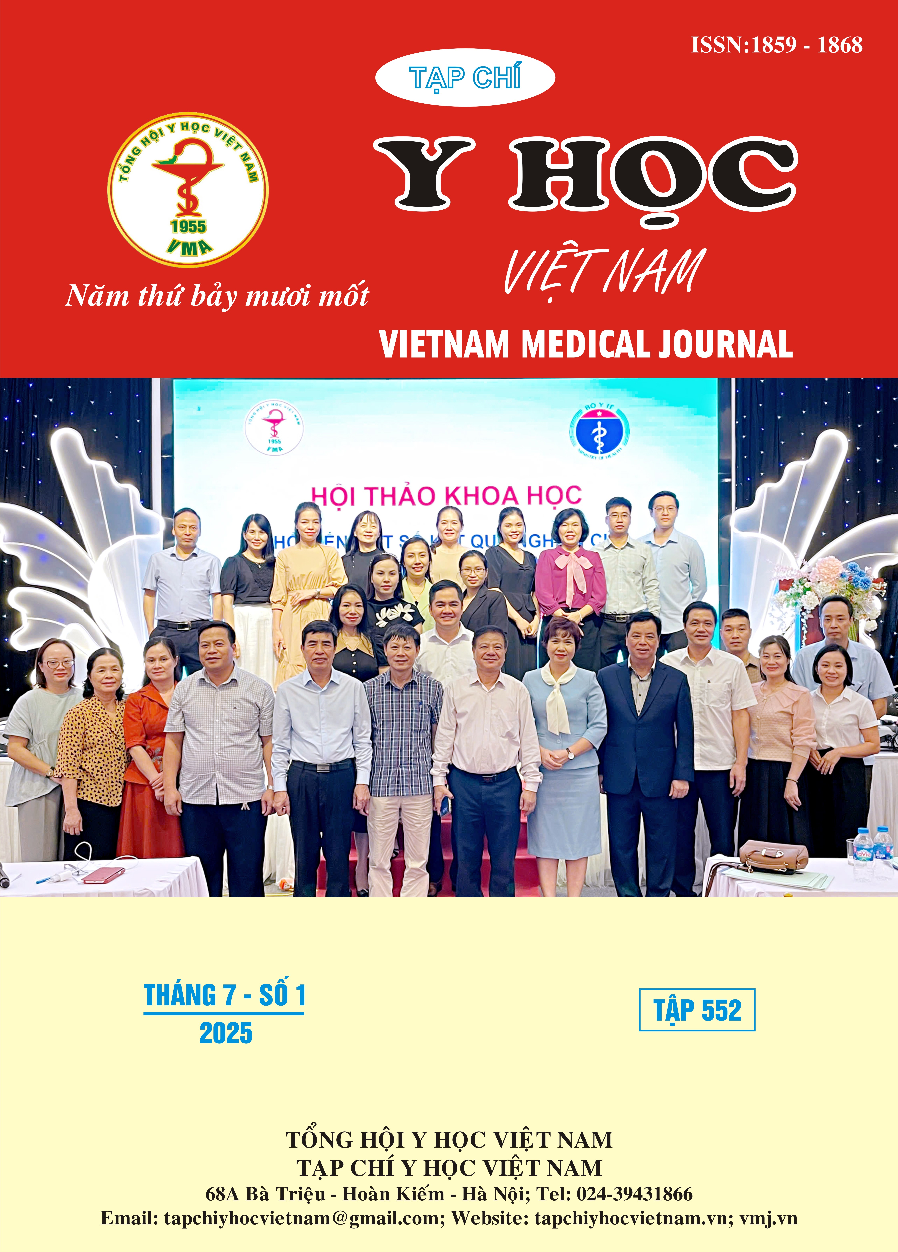KRAS MUTATION AND MICROSATELLITE INSATBILITY STATUS IN COLORECTAL CANCER
Main Article Content
Abstract
Colorectal cancer with microsatellite instability (MSI) status is associated with better prognosis. In addition, determining the KRAS gene mutation status is important in the targeted treatment of CRC with EGFR-inhibiting monoclonal antibodies. Objective: To evaluate the relationship between KRAS gene mutations with Microsatellite instability (MSI) and histopathological characteristics. Patients and methods: 185 patients were diagnosed as colorectal adenocarcinoma, who had surgery from 2018 to 2022. Evaluation of MSI status by immuohistochemial staining. KRAS mutation status was determined by realtime PCR with system Cobas Z480. Descriptive cross-sectional study method. Results: MSI rate accounting for 9,7%, age under 50 is common in the MSI group (55,6%), right colon location has a high rate of 66,7%, mucinous phenotyp accounting for 38,9%, poor differentiation accounting for 55,6% and tumor infiltrating lymphocytes accounting for 61,1% are more common features in the MSI group than the Microsatellite stability (MSS) group. The rate of KRAS mutation was 40.5%. The rate of KRAS wildtype/MSI and KRAS mutation/MSSI were 55,6% and 44,4% respectively, with p>0.05. Conclusion: Colorectal cancer with MSI status has distinctive clinicopathologic features, such as young patients under 50, proximal colon, mucinous phenotypes, poor differentiation and tumor infiltrating lymphocytes. The rate of KRAS mutations is 40.5%, no relationship between KRAS gene mutation and MSI status is seen.
Article Details
Keywords
Microsatellite instability (MSI), Lynch syndomre, KRAS mutation, Colorectal cancer (CRC)
References
2. Zaanan A., Flejou J.-F., Emile J.-F., et al (2011). Defective Mismatch Repair Status as a Prognostic Biomarker of Disease-Free Survival in Stage III Colon Cancer Patients Treated with Adjuvant FOLFOX Chemotherapy. Clinical Cancer Research, 17(23), 7470–7478.
3. Hu J., Yan W.-Y., Xie L., et al (2016). Coexistence of MSI with KRAS mutation is associated with worse prognosis in colorectal cancer. Medicine, 95(50), e5649.
4. Nguyễn Trọng Hòa, Trịnh Lê Huy (2021). Mối liên quan giữa tình trạng đột biến gen KRAS, NRAS, BRAF và một số đặc điểm bệnh học ung thư biểu mô đại trực tràng giai đoạn di căn. Tạp chí Y học Việt Nam, 506(1),160-164.
5. Nguyễn Văn Chủ, Trần Lê Giang (2021). Tình trạng mất ổn định vi vệ tinh trong ung thư biểu mô tuyến Đại trực tràng giai đoạn I-II. Tạp chí Y học Việt Nam, 489(2), 9-13.
6. Klingbiel D., Saridaki Z., Roth A.D., et al. (2015). Prognosis of stage II and III colon cancer treated with adjuvant 5-fluorouracil or FOLFIRI in relation to microsatellite status: results of the PETACC-3 trial. Annals of Oncology, 26(1), 126–132.
7. Lanza G., Gafà R., Santini A., et al. (2006). Immunohistochemical Test for MLH1 and MSH2 Expression Predicts Clinical Outcome in Stage II and III Colorectal Cancer Patients. Journal of Clinical Oncology, 24(15), 2359–2367.
8. Jenkins M.A., Hayashi S., O’Shea A.-M., et al. (2007). Pathology Features in Bethesda Guidelines Predict Colorectal Cancer Microsatellite Instability: A Population-Based Study. Gastroenterology, 133(1), 48–56.


